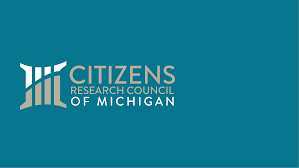
Michigan Should Treat Direct Care Workers as a Distinct Health Care Profession
Significant attention has been paid to shortages among various health care professions, including recent efforts to highlight potential nursing and primary care shortages. Direct care workers – personal care aides, home health aides, and nursing assistants – are another component of the health care workforce where existing shortages are expected to get worse over the next decade.
IN A NUTSHELL
-- Direct care workers – personal care aides, home health aides, and nursing assistants – are an important part of the health care industry and the overall caregiving framework.
-- Poor wages, lacking benefits, little room for career growth, and challenging work has led to a shortage of direct care workers, which is particularly concerning as demand for direct care workers has increased and will continue to grow due to the rising number of older Americans.
-- States have implemented policies to treat direct care workers as a distinct part of the health care profession, including increasing wages, improving benefits, and providing more training for direct care workers to improve recruitment and retention.
More Analysis from our Blogs:
- Michigan Appellate Court Ruling Upholds Stormwater Utilities
- Congress Fails to Address Inequities of Title I; MI Lawmakers Should Step In
- Sustainable Funding for Local Governments
- Reducing the Stresses of Parenting Belongs on the Policy Agenda
- Michigan Could Increase Road Funding with a Truck Weight-Distance Fee
RSVP Today for Grand Rapids, Lansing Events |
|
|
GRAND RAPIDS -- Using Public Policy to Spur New Tech Innovation/R&D in Michigan November 20, 12-1:30 pm, Gerald R. Ford Presidential Museum You are invited to attend a unique research presentation and that will explore the economics of innovation and the pivotal role of public policy in driving research and development for new technologies. Leading economists agree that economic innovation and productivity growth are fundamental to long-term economic prosperity and higher living standards. Over a light lunch, senior Research Council analyst Robert Schneider will present findings from his recent report on the relationship between public policy and the economics of innovation technology. He will review state-level programs designed to provide financing and business support to potential start-ups and early-stage companies bringing new technologies and product innovations to market. The report examines the scope of innovation and entrepreneurship programs offered in Michigan and select neighboring states and compares public investment levels. He will also outline revenue resources that could be tapped to increase Michigan’s public investments in innovation and entrepreneurship programming. "Economists agree that economic innovation and the productivity increases that it brings are the key drivers of long-term economic growth and higher standards of living." Event Details: Economic Innovation and Public Policy Date: Wednesday, November 20, 2024 Time: 12:00 – 1:30 p.m. Where: Gerald R. Ford Museum, 303 Pearl St., NW, Grand Rapids, MI Parking is free and accessible in both the main and over-flow lots. |
|
|
LANSING -- Emerging Leaders Council: Speakers and Listening Session November 21, 12-1:30 pm, SBAM Join us for the last ELC event of 2024. This Lunch & Learn event is being hosted by SBAM (Small Business Association of Michigan) featuring speakers, Kelli Saunders VP of Policy and Engagement, SBAM, Dan Wyant, Chairman and President of the Edward Lowe Foundation. We also will seek your input into what kind of policy research and analysis you think the Research Council should cover in 2025. The event offers a unique opportunity to make an impact on issues that should receive greater public awareness and discussion in 2025. REGISTRATION IS REQUIRED - Deadline: November 18 Event Details: Small Business, Entrepreneurship and Leadership Date: Thursday, November 21, 2024 Time: 12:00 – 1:30 p.m. Where: SBAM, 101 S. Washington Square, Suite 900, Lansing, MI Parking is available in downtown ramps and metered street parking. |
The Research Council in the News |
|
Part 3 of 3: Detroit's Frequent Use of Tax Abatements and Alternative Strategies to Improve Competitiveness |
|
|
The Research Council released a new analysis of Detroit’s use of tax abatements and policy options to wean the city off tax incentives, the last paper in a three-part series focusing on Detroit's economic competitiveness. The report, titled ‘Detroit’s Use of Tax Abatements and Alternative Strategies to Improve Competitiveness,’ documents the tax abatements granted over the last seven years, offers opportunities to reform Detroit’s processes for granting and tracking tax abatements, and discusses several policy changes that would improve Detroit’s economic competitiveness to lessen the need for tax abatements. |
###
Founded in 1916, the Citizens Research Council of Michigan works to improve government in Michigan. The organization provides factual, unbiased, independent information concerning significant issues of state and local government organization, policy, and finance. By delivery of this information to policymakers and citizens, the Research Council aims to ensure sound and rational public policy formation in Michigan. For more information, visit www.crcmich.org.

















